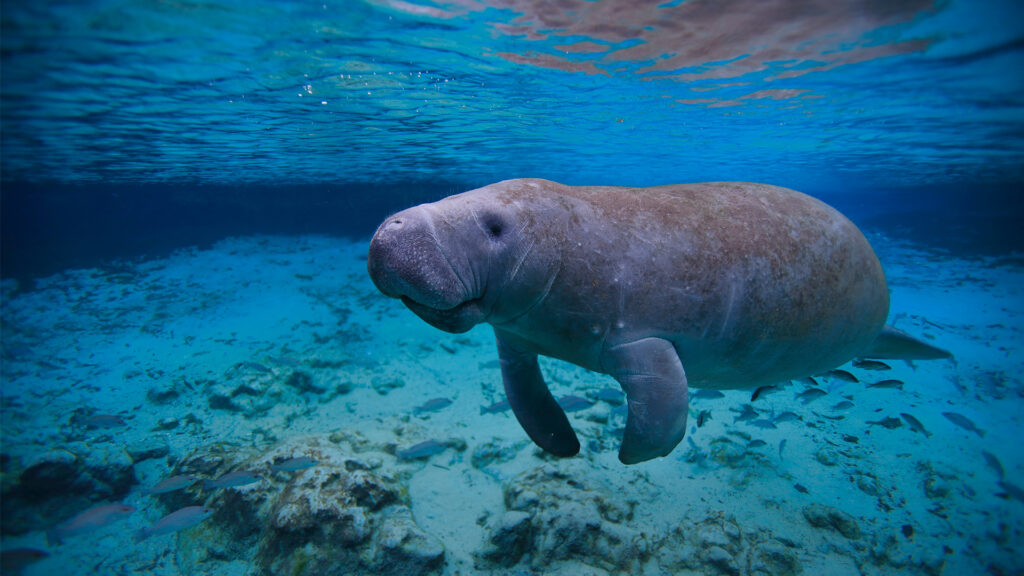A roundup of news items related to climate change and other environmental issues in Florida:
Climate change: Efforts to reduce global warming hurting manatees in an unusual way | Palm Beach Post

The zeal to tame and conquer Florida’s wilds and waterways has left one of its most beloved creatures slashed, starved and now potentially frozen in a collision of corrupted lands and efforts to slow global warming.
Historically, cold-fragile manatees flocked in winter to tepid natural springs, warm basins and coastal pockets where sun-heated water sheeted off yawning landscapes. Development spoiled those age-old refuges by blocking access to springs, depleting ground water sources and cutting off coastal flows.
More than half of Florida’s manatees have since found shelter during the darkest and chilliest days of the year huddling in the balmy discharges from the state’s power plants, according to the Florida Fish and Wildlife Conservation Commission.
Solar boom: Polk County among Florida’s hotbeds for utility-scale solar power plants | Lakeland Ledger
Every year, a land conference in Florida is hosted by Lakeland-based commercial real estate broker Dean Saunders for updates on the various land-use trends and tabulations of large land transactions in Polk County and across Florida.
And for nearly the past 10 years, the conference has shown astronomical growth in one type of land sale: large agricultural tracts sold for solar power generation.
Today, those sales equate to at least a dozen new utility-scale solar power facilities in Polk County either underway or already built.
Florida farmworkers created America’s strongest workplace heat rules | Washington Post
IMMOKALEE, Fla. — The sweet, earthy scent of tomatoes hangs in the air as a crew of 44 workers speeds through rows of vines. They fill 32-pound buckets with fruit, then deliver them to co-workers waiting on the backs of flatbed trucks who dump the contents into crates to be sorted and packaged.
During an eight-hour shift, each worker hauls an average of about three tons of tomatoes. They work at this pace all winter in this small farming community in southwest Florida — and all summer on a farm in Tennessee, where temperatures can reach the 90s.
But unlike at many other farms, every worker takes a 10-minute break every two hours during the hottest part of the year. When they feel the effects of heat illness coming on, they have the right to cool down in the shade. Sunripe Certified Brands, the company that owns the farm, must provide clean water, shaded rest areas and nearby bathrooms for all of its workers.
If you have any news items of note that you think we should include in our next roundup, please email The Invading Sea Editor Nathan Crabbe at ncrabbe@fau.edu. Sign up for The Invading Sea newsletter by visiting here.



